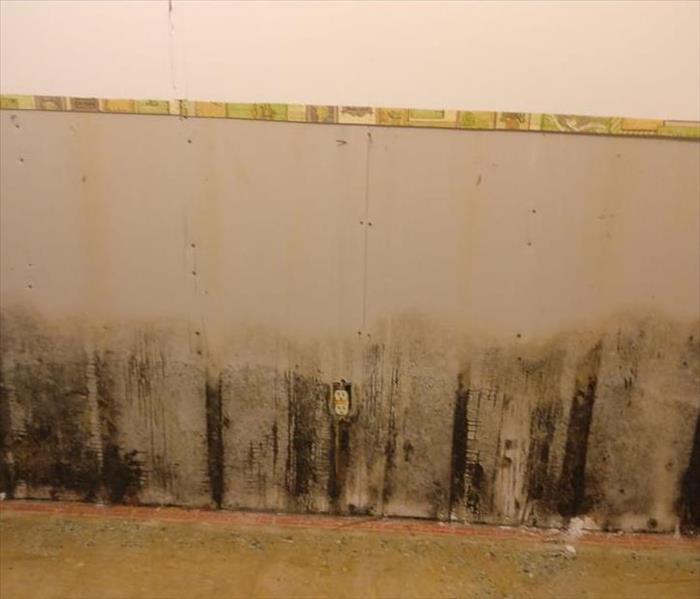Does your insurance policy cover Mold?
6/1/2018 (Permalink)
 Do you know what's hiding behind your walls? If you've had water damage, there could be something more.
Do you know what's hiding behind your walls? If you've had water damage, there could be something more.
Does your insurance policy cover mold?
Mold removal can be extremely costly, so you don’t want to find out too late that you’re not covered!
What’s included in mold coverage?
Coverage varies from policy to policy and state to state, so the only way to know for sure if your policy will cover mold removal is to read your policy carefully. Or, if the long document intimidates you, you can just ask your agent. It’s good to let the experts explain the nitty gritty details, that way you don’t miss a beat when an event does occur.
When Mold Coverage Exists:
In cases where mold coverage exists, coverage needs to be triggered by another covered cause of loss such as:
Water Damage from a Leaky Roof
Homeowners insurance usually won’t pay for water damage that results from a leaky roof, and most policies won’t cover mold damage that results from a leaky roof, either. This is because it is within your responsibility to provide maintenance to your home. However, if damage to the roof is caused by a fallen tree or limb, that damage usually will be covered by homeowners’ insurance. In that case, your insurance policy might also cover any resulting mold damage.
Note: Ignoring the problem won’t make it go away
Most policies have a requirement that you take reasonable steps to mitigate damage. Once you are aware of a water loss you have a duty to address the condition to protect from further damage. If you are aware of otherwise covered water damage and fail to take any action, there could be coverage issue for the water damage as well as any resulting mold damage.
We hope you don’t need our services, but if you find mold in your home, call SERVPRO of Black Hawk County at (319) 268-1521. We’ll arrange mold testing with MB Mold and Air Quality Testing in Dubuque, a trusted firm we utilize.





 24/7 Emergency Service
24/7 Emergency Service